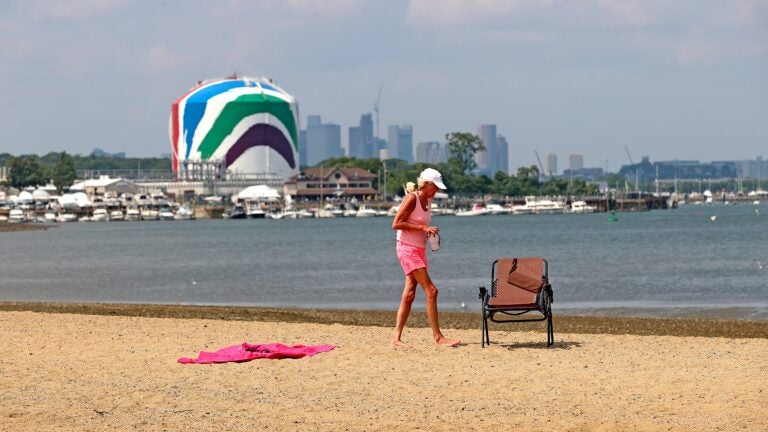
"As of Friday night, 58 beaches across 36 towns are closed to swimmers due to dangerous bacteria levels and blue-green algae blooms, according to the Massachusetts Department of Public Health's (DPH) interactive beach water quality dashboard. The closed beaches include both freshwater and ocean shorelines. However, the majority of closures are at freshwater ponds-only about 10 ocean beaches are closed. The number of beach closures has nearly doubled since last month, up from 31 on July 25."
"According to the DPH, bacteria levels can increase after heavy rain or from sources such as failing septic systems, sewer overflows, animal waste, and agricultural runoff. For health and safety reasons, experts advise against swimming in or going near beaches that have been ordered closed due to high bacteria levels and algae blooms. Coming in contact with contaminated water can cause illness, including stomach distress, cold-like symptoms, skin irritation, or eye and ear problems."
Fifty-eight beaches across 36 Massachusetts towns are closed to swimmers due to dangerous bacteria levels and blue-green algae blooms, per the Massachusetts Department of Public Health (DPH) beach water quality dashboard. Most closures are at freshwater ponds; about 10 ocean beaches are closed. The number of closures nearly doubled since July 25, rising from 31. Local health departments test more than 1,100 public and semi-public beaches daily or monthly depending on risk. Bacteria levels can increase after heavy rain or from failing septic systems, sewer overflows, animal waste, and agricultural runoff. Contact with contaminated water can cause gastrointestinal, respiratory, skin, eye, and ear illnesses, with children, older adults, and immunocompromised people at higher risk. The dashboard updates hourly between 8 a.m. and 5 p.m. during beach season.
Read at Boston.com
Unable to calculate read time
Collection
[
|
...
]